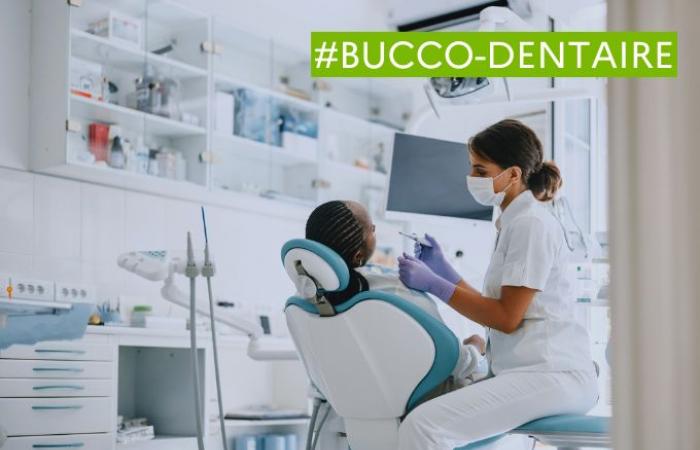
People with disabilities suffer more from oral and dental pathologies and have more difficulty accessing appropriate care. To remedy this, the Île-de-France Regional Health Agency is implementing an ambitious regional strategy to improve oral care for people with disabilities (PSH), structured around six axes: accessibility, access care, information, prevention, training and coordination.
To implement this strategy, the ARS supports and finances the RHAPSOD’IF network, which (among other missions) connects patients with disabilities requiring specific dental care with the network’s trained practitioners. Depending on their needs and disabilities, the patient is directed to the most suitable structure, ranging from the city dental office to the hospital technical platform.
However, to meet patient demands, the RHAPSOD’IF network needs to integrate more trained dental surgeons in order to increase its care capabilities. It is with this objective that the ARS proposed a partnership between the Caisse Régionale d’Assurance Maladie d’Île-de-France (Cramif) and RHAPSOD’IF.
In order to encourage young dental surgeons (less than 5 years of practice) to train, Cramif offers to finance a complete training course in the care of patients with disabilities. Training and support for volunteer dental surgeons are provided by RHAPSOD’IF. This is a 4-day course with a total cost of 1,500 euros.
The training of this first class began on September 26, 2024 with a specific awareness day about different disabilities and their treatment in dentistry. In the coming weeks, they will be trained in the use of MEOPA (equimolar mixture of oxygen and nitrous oxide), as well as in appropriate therapeutic communication.
In return for financing their training, the 7 dental surgeons in this promotion join the RHAPSOD’IF network and commit to caring for patients with disabilities, thus strengthening regional oral care resources for these patients. . From 2025, the objective is to train at least two dental surgeons per department.
The ARS thus plays a central role in bringing together health stakeholders and defining a global strategy to improve access to oral care for people with disabilities.
What is RHAPSOD’IF?
RHAPSOD’IF is a regional network in Île-de-France dedicated to oral and dental care for people with disabilities. It brings together health professionals, mainly dental surgeons, who are trained specifically to treat patients with special needs linked to their disability.
RHAPSOD’IF facilitates access to dental care by connecting these trained practitioners with patients, while offering adapted solutions, such as the use of special techniques to soothe patients.
The main axes of the regional strategy
1. Prevention:
- Raising awareness of oral hygiene in medico-social establishments (ESMS) and among families/carers of PWD outside ESMS.
- Development of awareness workshops and financing of local actions to promote the oral health of people with disabilities.
2. Formation :
- Training of ESMS professionals as oral and dental advisors.
- Strengthening the training of dental surgeons and dental assistants, including specific modules on PWD in their curriculum.
- Development of continuing training on the use of MEOPA and therapeutic communication.
3. Coordination :
- The RHAPSOD’IF platform coordinates the care requests of PWD, with digital tools to optimize the management and orientation of patients.
- Collaboration with various regional systems to improve support for PWD.
4. Accessibility:
- Promotion of the registration of dental surgeons in the accessibility santé.fr directory to make their services more visible to PWD.
- Promotion of existing subsidies to make dental practices accessible to PWD.
5. Access to care:
- Structuring of care into three levels: community care, care with specific equipment or technique, and hospital care under general anesthesia.
- Projects to increase regional care capacities, including experiments such as the “HANDIDENT” labeling of dental centers to better meet the needs of PWD.
6. Information :
- Dissemination of information to PWD, families, and professionals on existing systems, through webinars and communication campaigns.
ARS Île-de-France wishes to make this strategy a priority for the years to come, with ambitious objectives for 2025, such as improving prevention, access to care and regional coordination.





